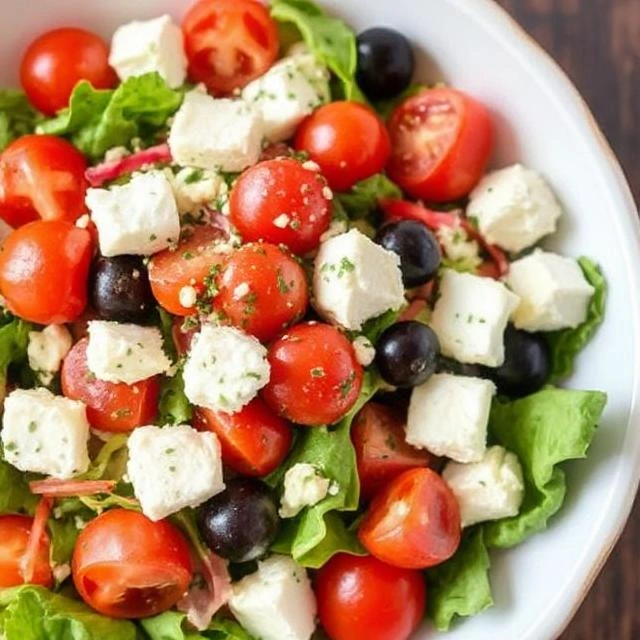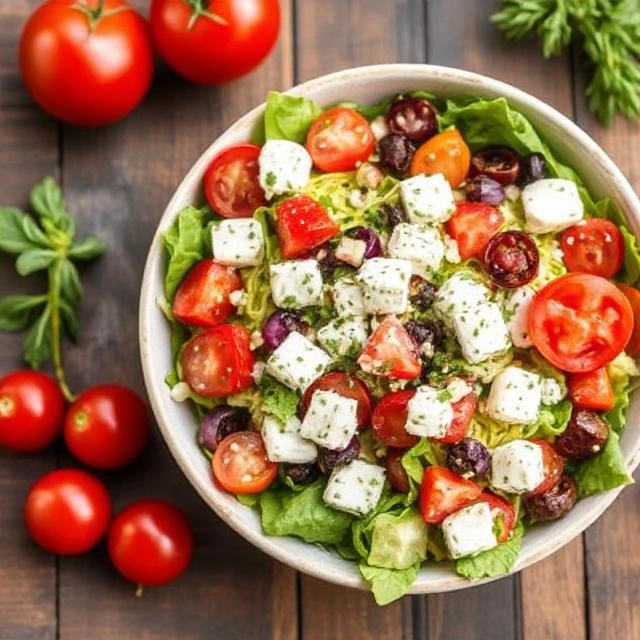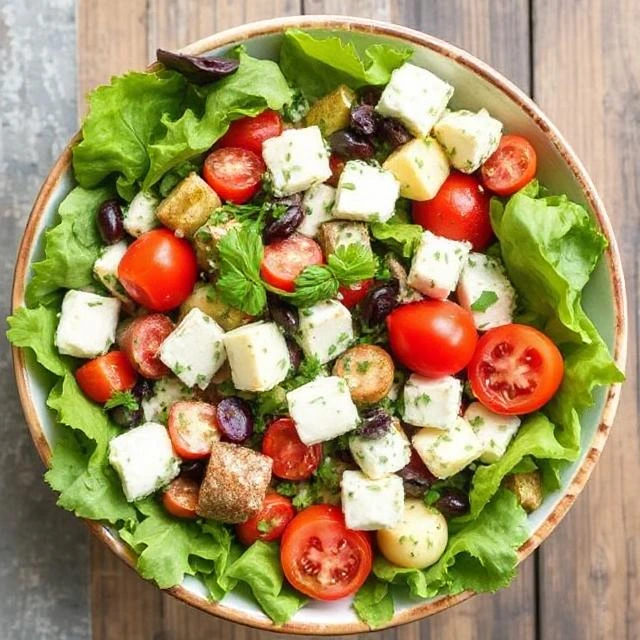Introduction: The Mediterranean Diet’s Crown Jewel
The Mediterranean diet is consistently ranked as the world’s healthiest eating pattern, and Greek salad (Horiatiki) sits at its flavorful heart. Bursting with fresh vegetables, heart-healthy fats, and antioxidant-rich herbs, this humble dish isn’t just a meal—it’s a nutritional powerhouse. In this article, we’ll unpack why Greek salad deserves its superfood status, how it aligns with Mediterranean diet principles, and why it’s a must-add to your weekly menu.
Chapter 1: What Makes the Mediterranean Diet a Global Gold Standard?
The Mediterranean diet, recognized by UNESCO as an Intangible Cultural Heritage, emphasizes whole foods, plant-based ingredients, and healthy fats. Studies link it to:
- Reduced risk of heart disease, diabetes, and cognitive decline
- Improved longevity and weight management
- Enhanced gut health and inflammation reduction
Key Components:
- Olive oil: Rich in monounsaturated fats and polyphenols.
- Vegetables & legumes: Fiber and phytonutrient powerhouses.
- Fish & lean proteins: Omega-3 fatty acids for brain and heart health.
- Herbs & spices: Natural anti-inflammatories like oregano and garlic.

(External Link: Read UNESCO’s report on the Mediterranean diet here)
Chapter 2: Deconstructing Greek Salad – A Nutrient Breakdown
Authentic Greek salad (Horiatiki) uses minimal ingredients for maximum impact:
1. Tomatoes
- Lycopene: A potent antioxidant linked to reduced cancer risk.
- Vitamin C: Boosts immunity and skin health.
2. Cucumbers
- Hydration: 95% water content aids digestion and detoxification.
- Silica: Supports joint and skin health.
3. Red Onions
- Quercetin: Anti-inflammatory and antihistamine properties.
- Prebiotics: Feed beneficial gut bacteria.
4. Kalamata Olives
- Oleic acid: Lowers LDL (“bad” cholesterol).
- Vitamin E: Protects cells from oxidative damage.
5. Feta Cheese
- Calcium & Protein: Supports bone health and muscle repair.
- Probiotics: Fermented dairy enhances gut flora.
6. Olive Oil
- Oleocanthal: Mimics anti-inflammatory drugs like ibuprofen.
- Polyphenols: Combat oxidative stress and aging.
(Internal Link: “Learn how to choose High-Quality Olive Oil”)

Chapter 3: Science-Backed Health Benefits of Greek Salad
1. Heart Health Hero
A 2023 study in The New England Journal of Medicine found that the Mediterranean diet reduces cardiovascular events by 30%. Greek salad’s olive oil, olives, and vegetables directly contribute to:
- Lower blood pressure
- Improved cholesterol profiles
- Reduced arterial inflammation
(External Link: Access the NEJM study here)
2. Diabetes Defense
The fiber in cucumbers and tomatoes slows glucose absorption, while olive oil improves insulin sensitivity. Research in Diabetes Care shows Mediterranean diets lower type 2 diabetes risk by 23%.
3. Brain Boost
Omega-3s from olive oil and antioxidants from herbs like oregano protect against cognitive decline. A 2022 study in Frontiers in Nutrition linked Mediterranean diets to a 35% lower risk of Alzheimer’s.
4. Weight Management
Low-calorie yet nutrient-dense, Greek salad promotes satiety. A Journal of Nutrition study found those following Mediterranean diets lost 50% more weight than low-fat dieters.http://10 Mediterranean Snacks for Weight Loss
Chapter 4: Greek Salad vs. Other “Healthy” Salads – Why It Wins
| Salad Type | Key Ingredients | Downsides |
|---|---|---|
| Caesar Salad | Romaine, croutons, Parmesan | High in saturated fat, sodium |
| Cobb Salad | Bacon, blue cheese, ranch | Calorie-dense, processed meats |
| Greek Salad | Olive oil, veggies, feta | Balanced fats, no added sugars |
Chapter 5: How to Build the Perfect Greek Salad – Tips & Twistshttp://USDA FoodData Central
Authentic Horiatiki Recipe
- Ingredients:
- 3 ripe tomatoes (quartered)
- 1 cucumber (thick slices)
- ½ red onion (sliced)
- ½ cup Kalamata olives
- 200g feta cheese (block, not crumbled)
- ¼ cup extra-virgin olive oil
- 1 tbsp dried oregano
- Sea salt to taste
- Method: Layer veggies, top with feta, drizzle with oil, and sprinkle oregano. Never add lettuce!http://10 Easy Mediterranean Diet Recipes”
(Internal Link: “Find 10 Easy Mediterranean Diet Recipes”)
Modern Variations
- Protein-Powered: Add grilled chicken or chickpeas.
- Vegan: Swap feta for almond-based “cheese.”
- Low-Carb: Skip tomatoes for extra cucumbers and avocado.

Chapter 6: FAQs – Your Greek Salad Questions Answered
Q: Is Greek salad good for weight loss?
A: Yes! Its high fiber and healthy fats keep you full without excess calories.
Q: Can I meal-prep Greek salad?
A: Prep veggies and feta separately; assemble before eating to avoid sogginess.
Q: Why is feta cheese healthier than other cheeses?
A: Feta is lower in calories and fat than cheddar or blue cheese, and it’s rich in probiotics.http://Harvard Health)
Conclusion: Embrace the Mediterranean Magic
Greek salad isn’t just a dish—it’s a lifestyle. By embracing its simplicity and nutrient density, you’re not only savoring a timeless recipe but investing in long-term health. Whether you stick to tradition or add modern flair, this superfood salad belongs on your table.